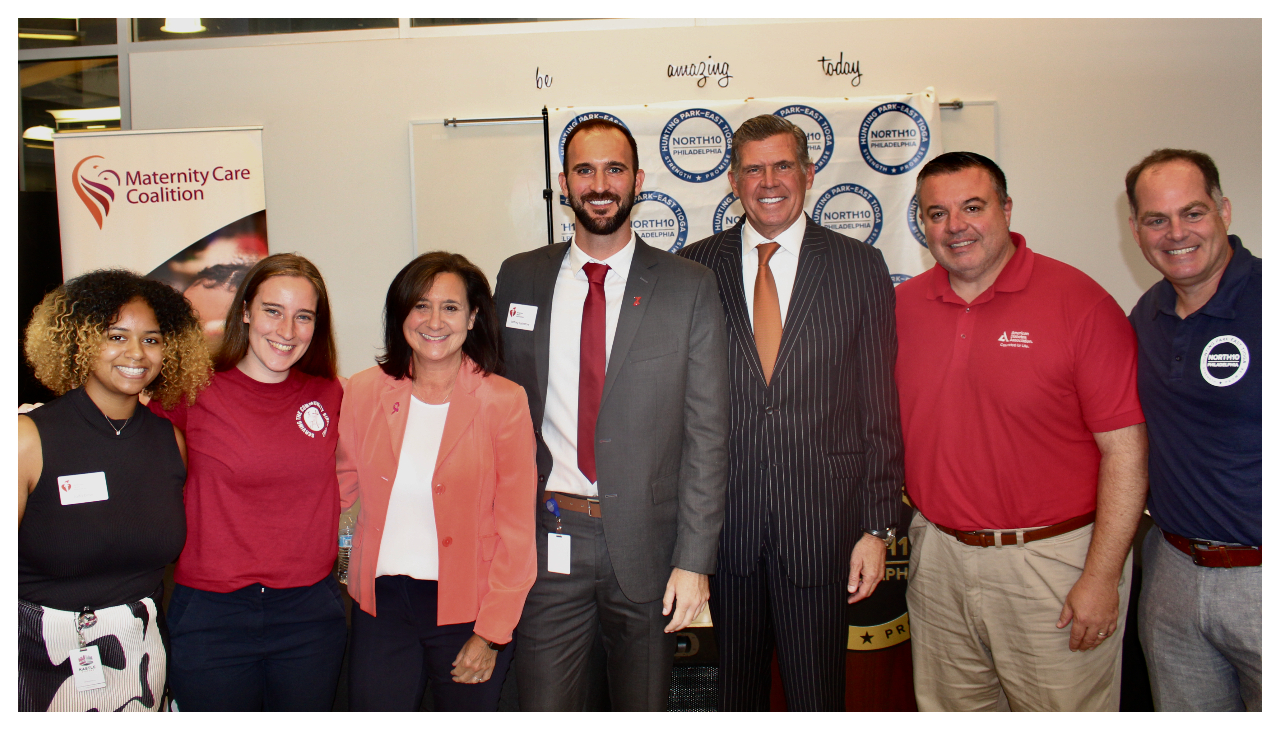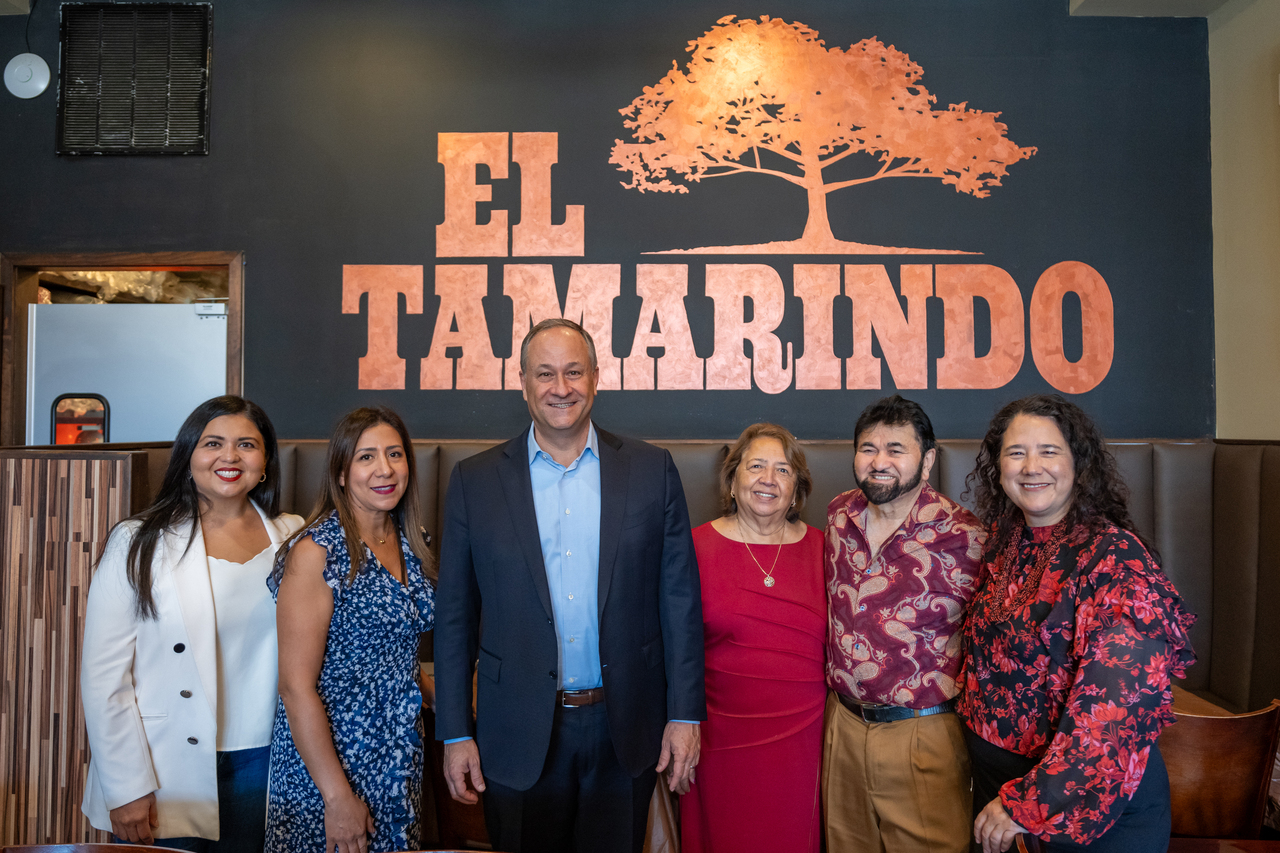
Three nonprofits band together to address health equities in diverse communities
The AHA, ACS, and ADA are working to improve health outcomes for Black, Hispanic/Latino, Asian American, and Native Americans.
On July 26, 2023, multiple notable health organizations launched a collaborative effort for improving the health outcomes for Black, Hispanic, Latino, Asian American, and Native American communities and individuals.
This new effort is spearheaded by the American Heart Association (AHA), the American Cancer Society (ACS), and the American Diabetes Association (ADA), with support from Bank of America, and will take place in 11 cities across the country, including Philadelphia.

“We could not carry out this initiative across Philadelphia’s neighborhoods without the support of our partner organizations and community partners.” said Jim Dever, President of Bank of America of Greater Philadelphia, during the recent press conference announcing the launch.
“These working organizations are working in the forefront to implement blood pressure improvement programs, disseminate health education, and create ways to reduce health disparities, and hypertension in our city,” he continued.
Working with the AHA as Vice President of Community Impact for the Greater Philadelphia region was Jeffrey Salvatore. The AHA reports that worldwide and in the United States, cardiovascular disease is the leading cause of death, with this year seeing the highest number of deaths since 2015.
Their solution to combat cardiovascular disease comes through what the AHA calls "access activated advocacy," a three pillar plan.
Breaking down the three pillars into an actionable plan, Salvatore described how they are seeking to implement programs to improve blood pressure control rates with local partners, implement and provide educational lessons, and to empower citizens as they advocate for their communities and become involved in policy decisions that impact their neighborhoods.
High blood pressure, or hypertension, impacts 34% of adults in Philadelphia, which is enough to fill Lincoln Financial Stadium almost eight times over, making Philadelphia one of the highest rates in the nation.
“This does not consider all of those walking around with hypertension, undiagnosed due to structural and systemic barriers in place, either limiting completely or preventing access to care. This is the exact demographic of people that the collaboration for equitable health helps in getting these much needed resources, education and connection to clinical care,” Salvatore said.
Cancer’s Heavy Prevalence
While blood pressure and cardiovascular disease impact the city, the ACS has sought to improve upon the rates of cancer in men.
While prostate cancer deaths have declined over the past two decades, it is still the second leading cause of cancer deaths for men in the United States, increasing by 3% per year from 2014 to 2019.

“Here at the American Cancer Society, our mission is to end cancer as we know it for everyone. I emphasize it for everyone, because we know that not everyone has benefited equally from the progress that's been made against cancer,” said Paula Green, Vice President of the ACA.
For Black men, they have a 70% higher incidence rate of prostate cancer than White men, with a mortality rate approximately two to four times higher than them, as well.
Similarly, breast cancer death rates have declined among women by 43% from 1989 to 2020, though it remains the leading cause of death for Hispanic and Latino women, as they and Black women are less likely to be diagnosed than White women.
“The work we are doing now in this collaboration really helps advance the solutions that are so desperately needed,” said Raymond Garrison, Executive Director of the ADA’s Eastern Pennsylvania & Delaware Office.
“Health inequities and social determinants of health are making people in our country less healthy than other developed countries. This also drives additional costs for individuals and for our healthcare system; diabetes is the most expensive product disease in the United States,” he continued.
According to the ADA, more than 11% of adults in Philadelphia county have been diagnosed with diabetes; above the national average. By taking a look at ZIP codes, 12 in Philadelphia have a prevalence of diabetes affecting 15% of the adult population, the number of such ZIP codes rising to 34 across Pennsylvania.
RELATED CONTENT
“We must address these systemic inequities in our healthcare system to improve access and affordability. Someone's ZIP code and background should not determine their health outcomes,” Garrison continued.
A Full Collaborative Effort
Over the course of the past year, the three organizations have been planning out how they are to collaborate, creating what they call an "engagement council."
This council is composed of key stakeholders across the Philadelphia region, including members from health systems, advocacy centers, and community based organizations to come together.

“Everybody's working in silos around the same issues. What can that look like if we come together, break down those silos and have a front end effort against structural and systemic racism,” said Salvatore, Vice President of Community Impact for the AHA.
By identifying those already working within the communities the collaboration wants to aid, it can focus its efforts into supporting those already trusted by the community.
These organizations include Delaware Valley Community Health, Public Health Management Corporation, Enon Tabernacle Baptist Church, Feast of Justice, Sanctuary Farms, Maternity Care Coalition, and North10.
Feast of Justice, represented by Meredith Ellison, its Community Building Liaison, spoke on their efforts in the region. As a food pantry, Feast of Justice provides free groceries for those facing food insecurity, alongside numerous social programs to benefit those in need.
By fostering several programs, Feast of Justice is able to assist with an individual's health through lessons, ranging on topics from exercise to high blood pressure.
Delving deeper into their methods, Ellison spoke on how after they complete a high blood pressure lesson, providing free blood pressure screenings.
“It's important to recognize that food insecurity does not happen in a vacuum, and that's why we consider ourselves more than a food organization. We know that food insecurity is layered with other systemic inequities, and that means that our focus has been on relationships and building trust,” Ellison concluded.











LEAVE A COMMENT:
Join the discussion! Leave a comment.